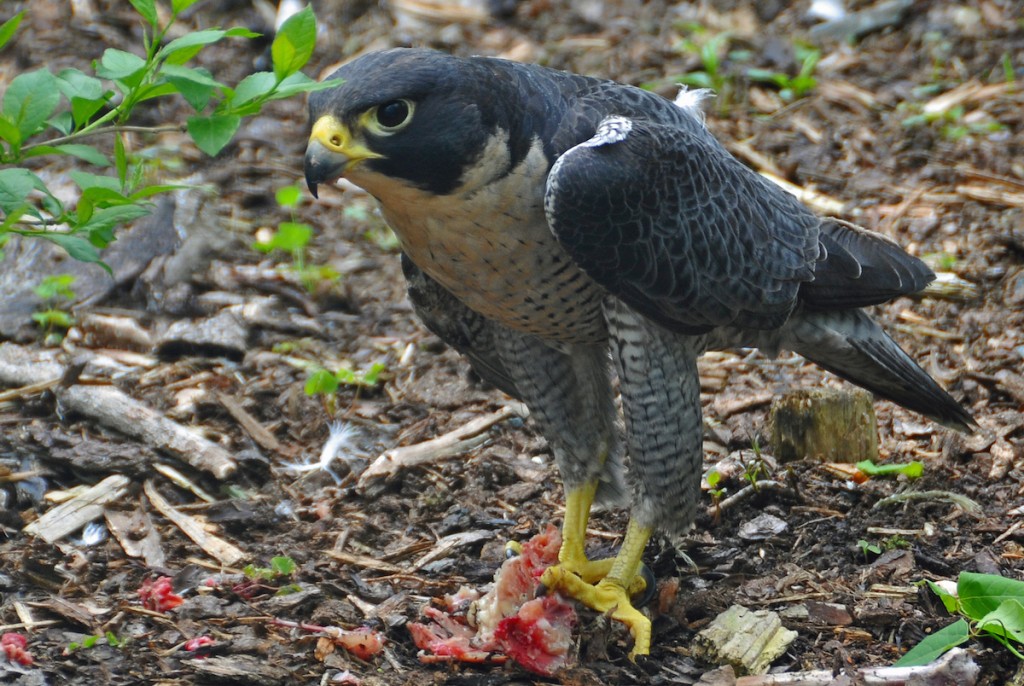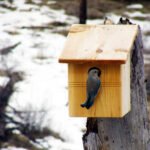Not all dads are created equal. In the world of birds, a dad’s involvement in the raising of its young and caring for the mother is vastly different species to species.
Male hummingbirds, for example, will give virtually no help when it comes to raising its young. The mother builds the nest and tends to the young while the father’s only task is to reproduce.
Even though male hummingbirds aren’t the most attentive fathers, there are many other species with awesome dads. Let’s take a look.
Peregrine Falcon

The male Peregrine Falcon is a great partner when it comes to child-rearing. In many ways, males will share duties with the mother when he’s needed. The mother will do most of the incubating, but the male will also take a turn if the female needs a break or she wants to eat the food he brought her.
When it’s time for the fledglings to start learning how to fly and then hunt, the males are right there beside the mother offering support and help.
Nuthatches

The nuthatch family is another group of birds with great fathers. Nuthatch dads are very attentive to mothers during the incubation period, even feeding her food so she doesn’t have to leave. When the eggs hatch, the dads also help give them food.
Downy Woodpecker

Downy Woodpecker fathers are notoriously amazing. Both male and female excavate the cavities together where they will nest, but the male takes on a larger role. Both parents will incubate and brood the eggs, but only the father does so at night. I’m sure every mother would appreciate getting a full night’s rest.
Once the young have hatched, both parents will feed them.
Emu

Sometimes called the model father, the emu is perhaps the most caring father of any bird. He builds the nest and incubates the eggs all by himself. In fact, the female will often leave and mate with other emus.
While he is incubating the eggs, he will not eat or drink anything. The only time he really moves is to turn the eggs. Over the eight weeks of incubation, he’ll lose a third of his weight, only sustaining himself on morning dew.
He will then stay with the chicks for up to 18 months, teaching them how to find food and defending themselves from predators. Hats off to the emu dads.



